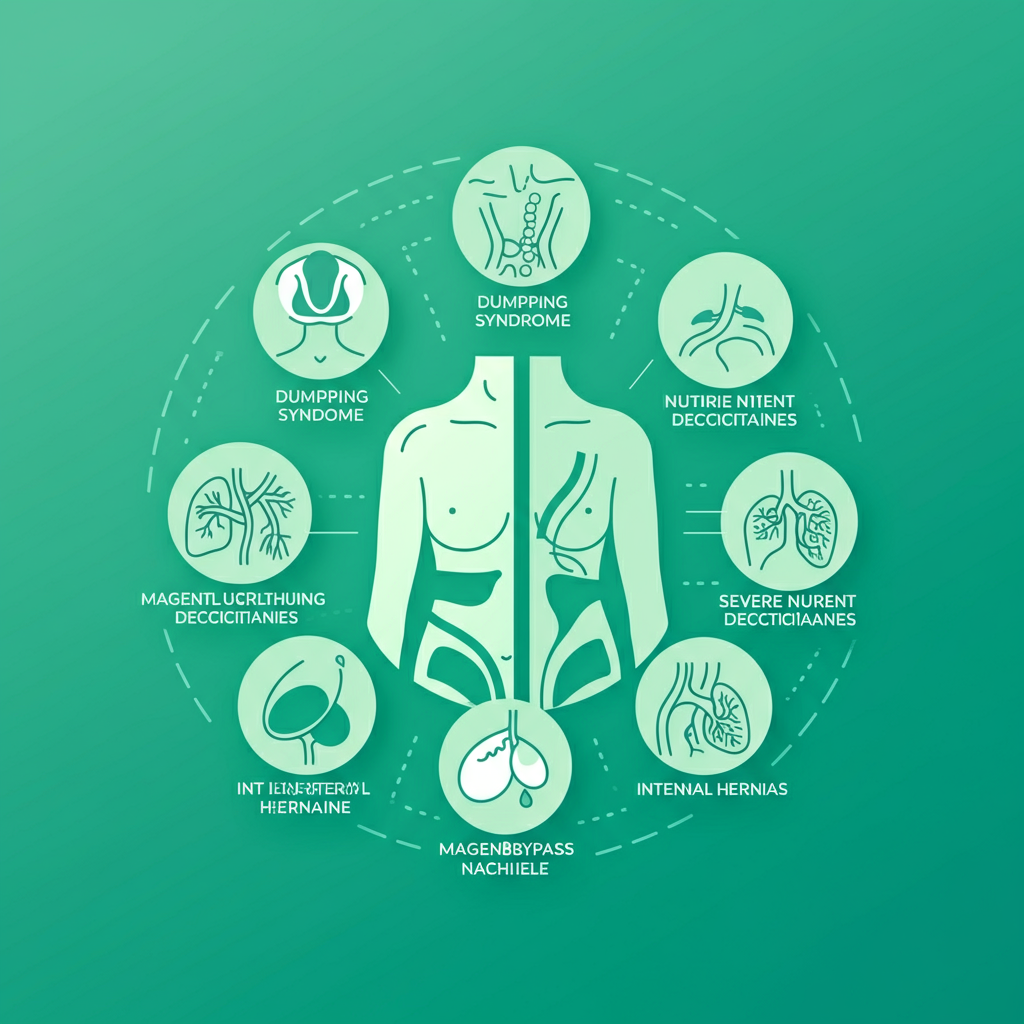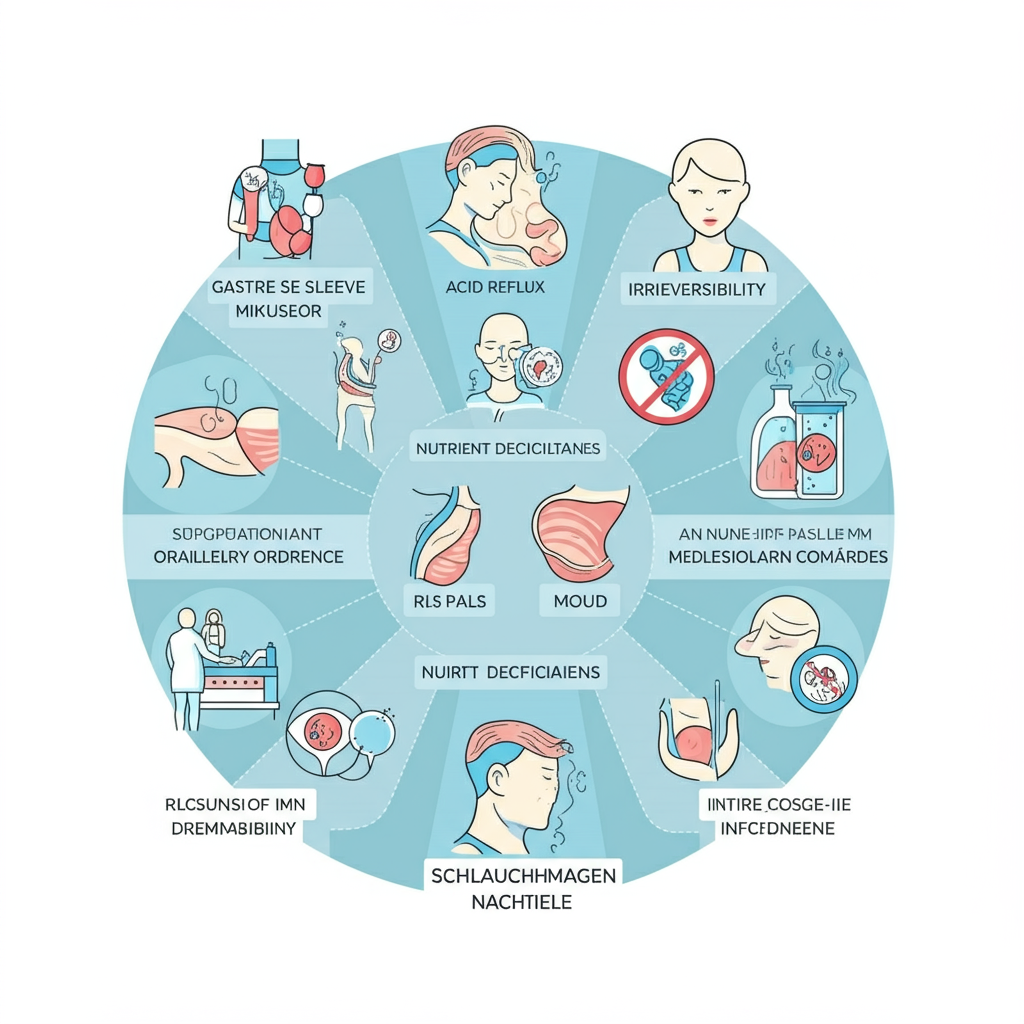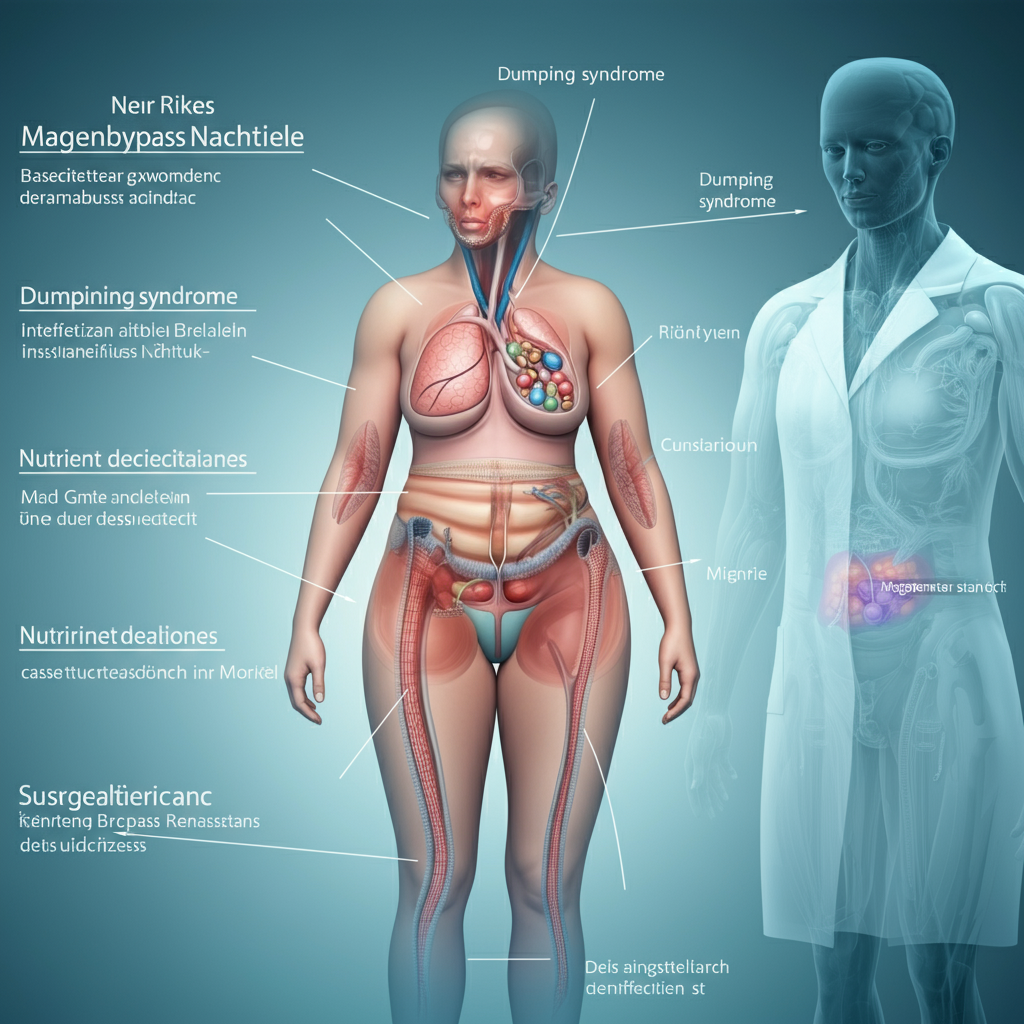Disadvantages of Gastric Sleeve Surgery
The decision to undergo gastric reduction surgery is a significant step for individuals seeking a sustainable path to weight loss. Procedures like the gastric sleeve or gastric bypass promise a considerable improvement in quality of life and health. Nevertheless, it is crucial to consider not only the benefits but also to comprehensively understand the potential disadvantages and risks. This article will provide a detailed look at the disadvantages of gastric sleeve surgery to offer you a well-founded basis for your decision.
We will explore the short- and long-term complications, the necessary lifestyle changes, and the psychological aspects associated with these procedures. A clear understanding of these challenges is key to a successful long-term outcome.

What are the general disadvantages of gastric sleeve surgery?
Every surgical procedure carries risks. Bariatric operations are complex procedures that permanently alter the gastrointestinal tract. Although techniques have improved significantly in recent years and complication rates are low with experienced surgeons, it is essential to be aware of the potential drawbacks. These can be divided into short-term surgical risks and long-term health challenges.
Short-Term Surgical Risks
Various complications can arise immediately after the operation and during the healing phase. Close medical monitoring during this period is crucial to detect and treat risks early.
- Infections: Any incision in the skin is a potential entry point for bacteria. Although strict hygiene standards are maintained in modern clinics, a wound infection can never be completely ruled out.
- Bleeding: Excessive bleeding may occur during or after the operation. In rare cases, this may require a blood transfusion or another procedure to stop the bleeding.
- Staple Line Leakage: This is one of the most serious complications. In both gastric sleeve and gastric bypass procedures, the stomach is reshaped and sealed with surgical staples. If this seam leaks, stomach contents can escape into the abdominal cavity, causing a life-threatening infection (peritonitis). Immediate medical intervention is mandatory in such cases.
- Blood Clots (Thrombosis): After any surgery, there is an increased risk of blood clot formation, especially in the legs (deep vein thrombosis). If such a clot dislodges and travels to the lungs, it can cause a pulmonary embolism. Mobilization and blood-thinning medication help to minimize this risk.
Disadvantages of Gastric Sleeve Surgery: A Comparison Table
| Feature / Risk | Gastric Sleeve | Gastric Bypass |
|---|---|---|
| Primary Mechanism ⚙️ | Restrictive (Limits food intake) | Restrictive & Malabsorptive |
| Sodbrennen (Reflux) 🔥 | Can worsen or develop | Often improves |
| Dumping Syndrome 🍬 | Rare | Common if diet is not followed |
| Nährstoffmängel 💊 | Moderate risk (B12, Iron) | High risk (multiple vitamins & minerals) |
| Komplexität phức tạp | Simpler procedure | More complex procedure |
| Irreversibilität 🔄 | Irreversible (Stomach is removed) | Technically reversible, but very difficult |
| Langfristige Risiken ⚠️ | Stenosis (narrowing), new-onset reflux | Internal hernias, ulcers, higher risk of deficiency |
Disadvantages of Gastric Sleeve: Specific Risks
The gastric sleeve (sleeve gastrectomy) is one of the most frequently performed bariatric surgeries. It involves removing about 80% of the stomach, leaving a narrow, tube-shaped residual stomach. This significantly restricts food intake. Despite its effectiveness, there are specific gastric sleeve disadvantages that must be considered.
Long-Term Complications of the Gastric Sleeve
- Gastroesophageal Reflux Disease (GERD): A commonly discussed disadvantage of the gastric sleeve is the potential for new onset or worsening of heartburn. The change in stomach anatomy can increase pressure within the stomach, promoting the backflow of stomach acid into the esophagus. While the condition improves for some patients, others may require long-term medication or, in rare cases, a follow-up surgery.
- Nutritional Deficiencies: Although the small intestine is not altered, the reduced food intake can lead to deficiencies. Vitamins and minerals such as vitamin B12, iron, and vitamin D often need to be supplemented for life. Regular blood tests are essential to detect deficits early.
- Stenosis (Narrowing): During the healing process, scar tissue can form, narrowing the gastric sleeve. This can lead to difficulty swallowing, vomiting, and pain. Such a narrowing may need to be treated with an endoscopic dilation.
- Limited Reversibility: The removal of a large part of the stomach is an irreversible process. Unlike a gastric band, the procedure cannot simply be undone.

Gastric Bypass Disadvantages: What You Should Know
The gastric bypass (Roux-en-Y gastric bypass) is a more complex procedure. A small stomach pouch is created and connected directly to a lower section of the small intestine. This not only limits food intake (restrictive effect) but also reduces the absorption of nutrients and calories (malabsorptive effect). This often leads to faster and more significant weight loss, but it also comes with specific gastric bypass disadvantages.
Long-Term Complications of the Gastric Bypass
- Dumping Syndrome: This is a common consequence of gastric bypass. If sugary or fatty food passes too quickly from the small stomach pouch into the small intestine, it can lead to unpleasant symptoms. A distinction is made between early dumping (shortly after eating), with symptoms like nausea, abdominal cramps, diarrhea, and dizziness, and late dumping (1-3 hours after eating), with signs of hypoglycemia such as sweating, tremors, and intense hunger.
- Significant Nutritional Deficiencies: Because a part of the small intestine where important vitamins and minerals are absorbed is bypassed, the risk of deficiencies is higher with a gastric bypass than with a gastric sleeve. A lifelong, disciplined intake of special multivitamin supplements, calcium, vitamin D, vitamin B12, and iron is absolutely necessary to prevent serious health problems like anemia, osteoporosis, or neurological disorders.
- Internal Hernias: The rerouting of the small intestine creates gaps in the abdominal cavity through which loops of intestine can slip and become trapped. An internal hernia can lead to a bowel obstruction and is a surgical emergency that requires immediate operation.
- Gallstones: Rapid and massive weight loss, as is common after a gastric bypass, is a major risk factor for the formation of gallstones. These can cause painful colics and may require the removal of the gallbladder.
Lifestyle Changes: The Greatest Challenge
The real work begins after the surgery. Gastric surgery is not an “easy way out” but a tool that requires a fundamental and permanent change in lifestyle.
Dietary Adjustment
After the procedure, the stomach can only hold very small portions. The diet must be gradually built up from liquids to pureed and then solid foods. In the long term, patients must learn to eat slowly, chew thoroughly, and consume several small, protein-rich meals throughout the day. Certain foods, especially those high in sugar and fat, as well as carbonated beverages, are often poorly tolerated and must be avoided.
Psychological Impact
Massive weight loss changes not only the body but also the psyche. While many patients experience a new sense of self-confidence and greater joy in life, challenges can also arise:
- Altered Body Image: Rapid weight loss often leads to excess skin, which can be distressing and may require subsequent plastic surgery.
- Social Changes: Relationships with friends and family can change. Dinner invitations or social events can become sources of stress.
- Mental Health: The surgery does not cure the emotional causes of obesity. Eating disorders like binge eating can shift (e.g., to a shopping addiction) or recur. Psychological support before and after the surgery is therefore invaluable.
The Importance of Preparation and Aftercare
To minimize the disadvantages of gastric sleeve surgery and ensure long-term success, careful preparation and structured aftercare are essential.
- Choice of Surgeon and Clinic: Opt for an experienced bariatric surgeon and a clinic with proven expertise and a multidisciplinary team (nutritionists, psychologists).
- Comprehensive Information: Attend all consultations and ensure you understand all the pros and cons of the different procedures.
- Lifelong Aftercare: Regular check-ups, blood tests, and continuous support from an expert team are not optional extras but a crucial part of the treatment.

Conclusion: A Well-Considered Decision
Gastric surgery can be a life-changing procedure that leads to a dramatic improvement in health and quality of life. However, the potential disadvantages—from surgical risks like leaks to long-term challenges like dumping syndrome and nutritional deficiencies—must not be underestimated. The disadvantages of gastric sleeve often focus on reflux and a lower but still present need for supplementation, while the disadvantages of gastric bypass primarily include dumping syndrome and a higher risk of malnutrition.
A successful journey begins with an honest examination of these risks, the choice of a qualified medical team, and the willingness to permanently change one’s lifestyle. By carefully weighing these aspects, you create the best possible conditions for a healthier and lighter life.
Frequently Asked Questions (FAQ): Disadvantages of Gastric Sleeve Surgery
What are the biggest disadvantages of gastric sleeve surgery?
The need for a lifelong, strict diet, the risk of nutritional deficiencies, and the permanent alteration of the gastrointestinal tract.
What are the specific disadvantages of gastric sleeve?
A primary disadvantage is the potential onset or worsening of heartburn (reflux). Additionally, the procedure is irreversible.
What are the most common disadvantages of gastric bypass?
Dumping syndrome (intolerance to sugar/fat) and a higher risk of significant vitamin and mineral deficiencies are the main drawbacks.
Is gastric sleeve surgery a dangerous procedure?
Every surgery carries risks. However, when performed by experienced surgeons, the rate of serious complications is low. Risks include infections, blood clots, and staple line leaks.
Will I have to take vitamins for life after the surgery?
Yes, lifelong intake of special dietary supplements is mandatory to prevent deficiencies such as anemia or osteoporosis.
Can I regain weight after gastric sleeve surgery?
Yes, weight regain is possible if dietary and exercise guidelines are not permanently followed.
Does gastric sleeve surgery cause hair loss?
Temporary hair loss is common in the first few months after surgery due to rapid weight loss and potential nutrient deficits, but it usually resolves.
Will there be excess skin after the surgery?
Yes, significant weight loss often results in excess skin on the abdomen, arms, and legs, which may require later plastic surgery.
Does alcohol consumption change after the surgery?
Yes, alcohol is absorbed much faster by the body and is not well tolerated. Consumption should be severely limited or completely avoided.
